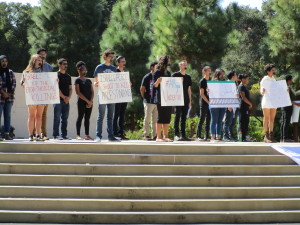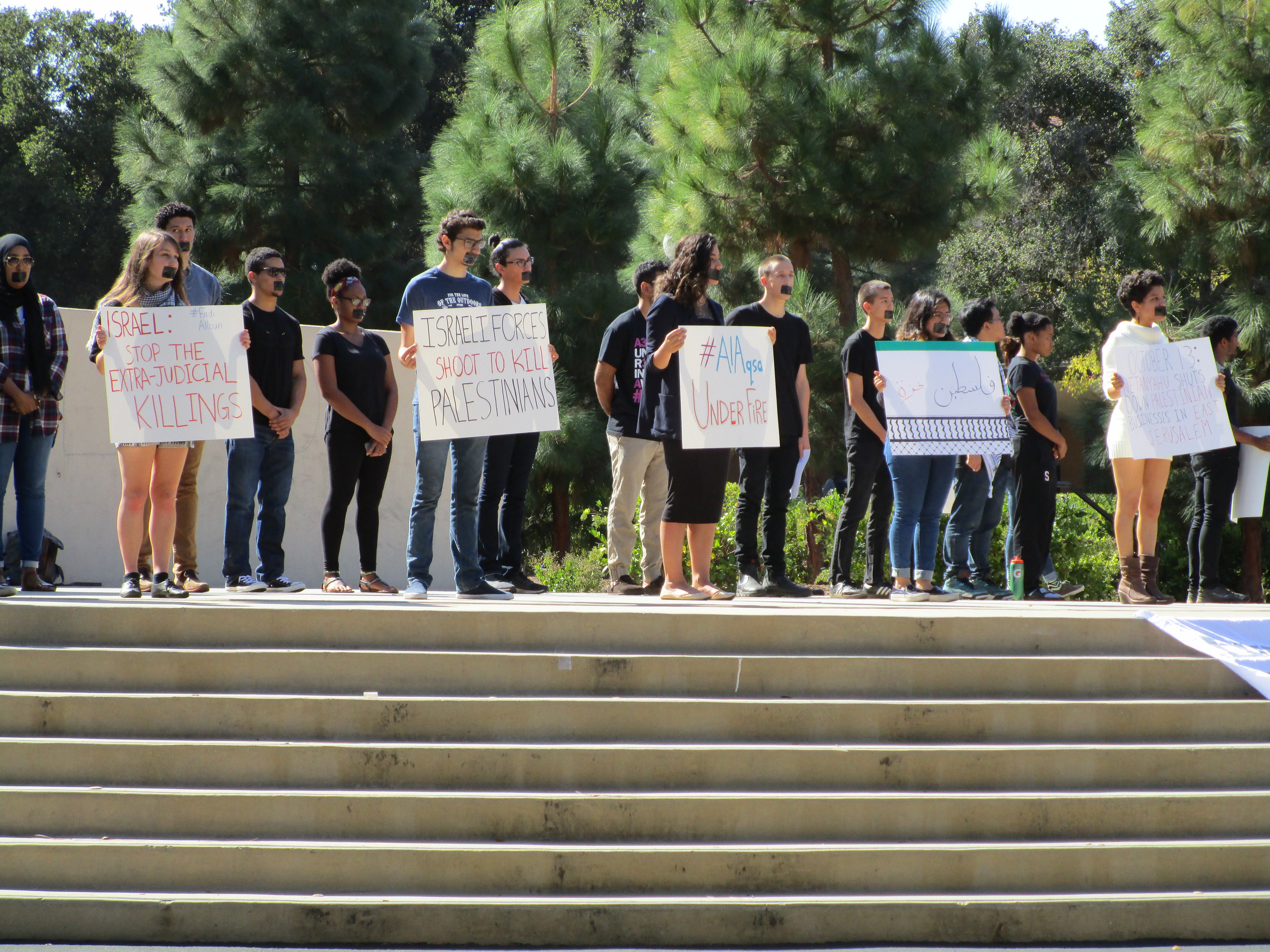
Black duct tape over their mouths and cardboard signs bearing slogans in their hands, students gathered silently on the White Plaza stage Friday to protest the occupation of Palestine and the recent eruption of violence between Israelis and Palestinians.
Students for Justice in Palestine (SJP) — a student group working toward justice and the recognition of universal rights in Israel and Palestine — organized the protest, which was attended by members of many other student organizations.
The action aimed both to honor those who have lost their lives in this month’s events and to show that these events are part of a broader context of years of Israeli occupation, said Fatima Zehra ’17, co-facilitator of SJP.
“We want to…shed light on the fact that this occupation has been going on for years, and so this conflict is a symptom of that rather than a cause to maintain the occupation,” said Zehra.
“Settler colonialism has killed 7 Israelis and 32 Palestinians this month,” read one protester’s sign. Other slogans included “Israel is an apartheid state” and “Stop Israeli militarism.”
A banner spread over the steps of the stage quoted Nelson Mandela: “Our freedom is incomplete without the freedom of the Palestinians.”
Many protesters duct-taped their mouths to symbolize the harassment and intimidation that pro-Palestine activists encounter on college campuses, as well as media silence on the topic of Palestine, said Kenneth Tea ’17, also an SJP co-facilitator.
“At Stanford, we have friends who have been called terrorists, members of Al-Qaeda, just for being more vocal than they’re expected to be,” said Tea.
“Because we think dialogue hasn’t really done much for the emancipation of Palestinians, we’re accused of being violent, militant, divisive,” added Zehra.
Cardinal for Israel (CFI), a student group dedicated to celebrating Israel’s achievements, hosted a vigil Sunday to commemorate Israelis killed this month. Zehra, however, found CFI’s emails advertising the event problematic because of they called Israelis who had been killed “victims of terror.”
“There’s implicit racism in that, because it’s like, all Palestinian Arabs are terrorists, as opposed to mentioning the 39 Palestinians who have lost their lives because of the [Israeli Defense Force],” said Zehra.
Every death resulting from the conflict is grievable and tragic, said Zehra, but these deaths must be examined in context.
“You can’t commit extrajudicial executions, home demolitions, you can’t maintain the illegal wall, you can’t bring in settlements and then name the people who are revolting as terrorists. There has to be some form of accountability,” Zehra said.
The protest gained support from so many other student groups — MEChA, the Black Student Union and Stanford Students for Queer Liberation among them — because these groups see parallels between their communities’ historical experience of state-sponsored violence and occupation and the experience of Palestinians, said Zehra.
As of Sunday, eight Israelis and over 40 Palestinians have been killed in this month’s eruption of violence, with many others wounded.
Contact Abigail Schott-Rosenfield at aschott ‘at’ stanford.edu.
